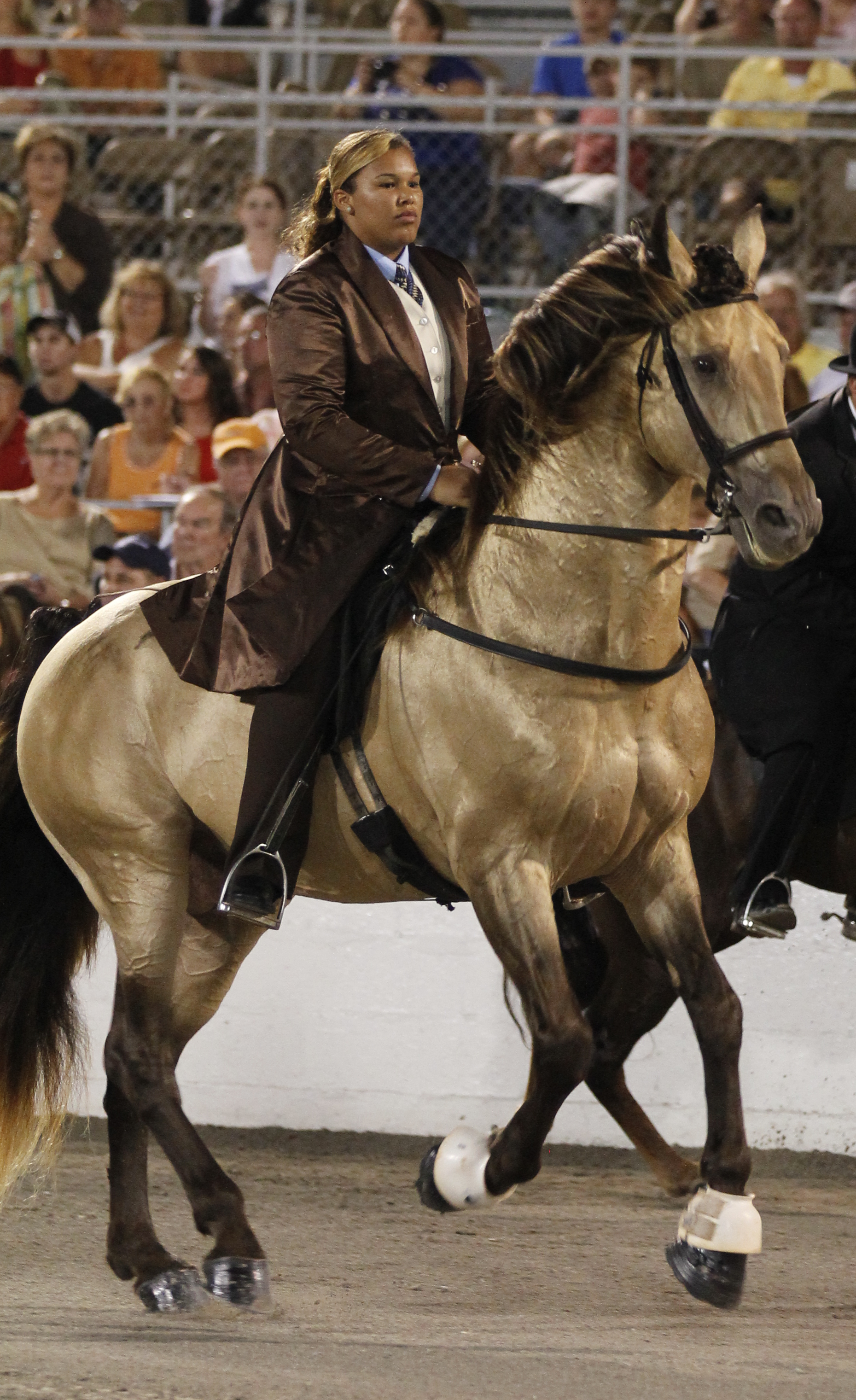Tennessee walking horses are a beautiful and iconic part of the state's - even the South's - history and culture.
Now, thanks to some strong doses of courage, the original strength and magnificence of this incredible breed may have an opportunity to come back from what Tracy Boyd calls the "black cloud" of abuse.
Boyd and six other members of the Tennessee Walking Horse Breeders' and Exhibitioners' Association's executive committee voted over the weekend to support House Resolution 1518. The resolution, known as the Whitfield Amendment, would amend the Horse Protection Act to make soring a federal felony and would outlaw the pads, chains and action devices that rub the sored legs and pasterns of an abused horse.
"Our past has finally caught up with us, and the image currently conveyed by our performance horse is no longer accepted in 2013," Boyd wrote to his constituents in a long, open letter posted to the group's website.
Boyd's group, known as TWHBEA, is the oldest and largest Tennessee Walking Horse group in the country, and it is the walking horse breed registry. It is where these horses get their pedigrees. It is the walking horse nation's capital.
"TWHBEA has lost members in droves, and the brutal emails I have received tell me why. It is our reputation. It is soring. It is our image."
Soring is the use of chemicals and devices to make a horse sore and cause it to exaggerate its gait.
Boyd, who lives in Shelbyville, made it clear why the time is now to mend walking horse fences.
In the late 1990s and early 2000s, the walking horse industry -- driven by padded show horse market -- was breeding 25,000 mares and registering 14,000 foals. By 1997, TWHBEA hit the 20,000-member mark and in the early 2000s operated with a $5 million budget and 25-30 employees. Breeders were breeding for $15,000-$20,000 yearlings, and the Tennessee walking horse was the fastest growing breed in America and the fourth largest breed registry overall.
Then came the 2006 and 2012 scandals: First was a year with no champion because of rumored bribing when USDA inspectors eliminated all but three horses in competition. Then last year produced a blockbuster video of hall-of-fame trainer Jackie McConnell abusing horses -- along with his federal conviction.
Today TWHBEA has fewer than 10 employees, and they work a four-day week with salaries cut by 20 percent. Members are down to 8,300. Breeding production levels are at 1950s numbers.
"It is clear to me that what our industry is doing is no longer working in today's world. Times have changed. The world, through technology, gets smaller and smaller every day. We can't hide any longer," Boyd wrote.
Despite his courage and brutal honesty, and the 7-4 vote of the executive committee to support the amendments, the full board later Saturday voted 27-17 against ratifying the executive committee's position, according to Keith Dane, a member of the board and also the Humane Society's director of equine protection.
It's a setback, but Dane still sees the action as huge -- possibly a pivotal moment.
"I think its pretty monumental for the sitting president of TWHBEA to take a stand like this. He's getting it -- that soring is hurting the horses and creating a huge stigma around this breed. He sees that the industry can't continue along this track," Dane said.
Boyd called it the toughest decision of his life, and a decision that carries potential ramifications for many of his friends and his immediate family.
"It's been tough, but it's also been good," he said in an interview this week. "The positive responses I've gotten have been overwhelming.
"My whole goal is to bring this to a call of action. I want people to come up with a performance horse the public can get behind and support. For far too long we've let the negative hold this breed back from what it can be."
He couldn't be more right.
The abuse is unconscionable. And the pads aren't needed, except to make a breed that already reaches high and far have a still further exaggerated "big lick." Trainers and owners sought that ever-higher step out of pride or greed and created years of unleveled tracks for a horse that already is magnificent.
The horses in those rings today are not better. And certainly not prettier. In fact, the so-called enhancements of pads and chains just make them clumsy.
Tennessee can do better for its icon. It must.

